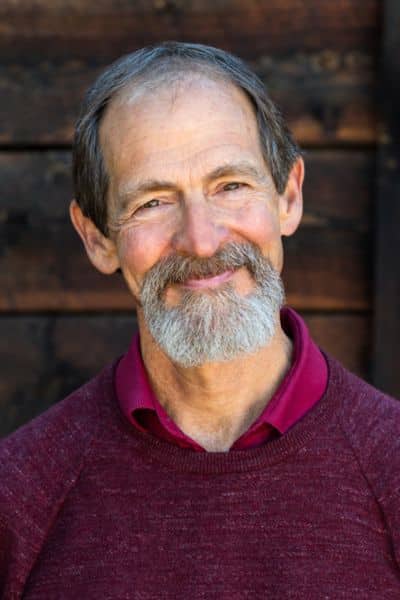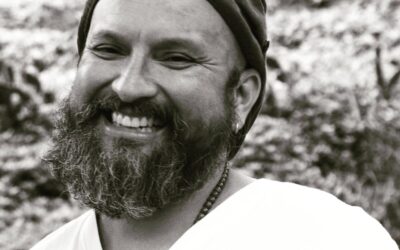Scott Shannon, MD co-founded PRATI in 2019, and we are honored to have him as a faculty member for our trainings! Scott has been a student of consciousness since his honors thesis on that topic at the University of Arizona in the 1970s under the tutelage of Dr. Andrew Weil. MDMA-assisted psychotherapy became a facet of his practice before this medicine was scheduled in 1985. Scott has published four books on holistic mental health including the first integrative psychiatry textbook for this field in 2001.
In 2010, Scott founded Wholeness Center in Fort Collins. This innovative clinic provides cross-disciplinary evaluation and care for all mental health concerns, and many of PRATI’s faculty have worked at Wholeness Center. Scott serves as a site Principal Investigator and therapist for the Phase III trial of MDMA-assisted psychotherapy for PTSD sponsored by the Multidisciplinary Association for Psychedelic Studies (MAPS).
Thank you for everything you do, and for sharing your insights in this interview!
Tell us a little about your therapeutic practice and your vision for the world.
I retired from regular clinical practice last year after 40 years in the trenches. I now provide a limited number of medicine sessions each month with ketamine or psilocybin. I am spending most of my time with research development/clinical innovation, training/teaching, and writing. We are about to publish two articles on our grant-driven ketamine groups for first responders and healthcare workers. This has been very satisfying. My teaching has taken me all over the world and I enjoy that work immensely. Currently, we are exploring how wearables and biometrics can support outcome-based science and move psychiatry deeper into a biologically relevant science.
My vision for the world has been consistent and remains strong. We need to bring spirituality and healing back into healthcare and transform our current ailing system. The combination of integrative medicine and psychedelics can do that well. I see the transformation in the patients I sit with, in the professionals that I teach, and in systems that embrace these changes. There is a palpable spiritual hunger all over the world and it emanates from the limitations of our science and healthcare that has excluded consciousness, psyche, and spirit from recognition. To that end, I am launching a PRATI seminar series soon called The Inward Arc that will explore the interface of consciousness, metaphysics and psychedelics in a six webinar format. I am teaching this with a leading psychedelic philosopher, Peter Sjostedt-Hughes from London. Wilhelmina and I are also currently exploring a new format program that will highlight the development of mystical experience and deeper states of transformation. My work with PRATI makes my heart sing and it feels like together with this team that we are living my dream of transforming healthcare delivery.
What do you appreciate most about using KAP/PAT as a modality with your clients?
It is the power of transformation that pulls me in. Compared to conventional care the psychedelic model emphasizes our capacity for healing and our drive for both spiritual connection and meaning in our lives. I am continually impressed by how quickly these agents can catalyze change. Not only does the session itself offer us frequent insights, new information, and a shift in perspective, but also the lingering enhancement of neuroplasticity. As an indirect effect, our alignment and rapport with each person that we work with also accelerates. This is the therapeutic bond that we forge together. We ignore the power of this bond at great peril. It seems to me in many ways that psychedelics and spiritual growth improve our ability to function in relationship-within yourself and with others. Increasingly, I think of this as our capacity for love. Mental health is closely related to our ability to love. KAP and PAT help my patients to be more loving and this, in turn, supports my own healing as I become part of the process with them as a support and witness.
What advice would you offer to a provider interested in starting to practice KAP/PAT?
It seems critical to step into this work in a thoughtful manner. I have a few thoughts about this. First, embrace the need for your own work. We must be living in an active process of growth and self-awareness to do our best work. As Gabor Mate says, self work is the most important work. Second, find colleagues to learn with. Develop a group of like-minded people to do group supervision with and sit with. This develops our skills and supports us in this unconventional work that is often misunderstood. The power of groups should never be underestimated. I found that my mens’ group in the 1990s was critical to me taking steps to practice more authentically. Finally, remember that psychedelics are not a complete mental healthcare system and we should continually explore and employ other healing methods to address the needs of the whole person with a range of needs.
Is there anything else you would like to share with our community?
Don’t forget to play. Play is the most fun way to find joy. Keep things light and find more and more reasons to laugh. I just finished watching Mission Joy on Netflix. This documentary features the Dalai Lama and Bishop Tutu being interviewed together. The defining characteristic of these two men (besides courage and wisdom) is their ability to laugh and be childlike. Much to learn there.




